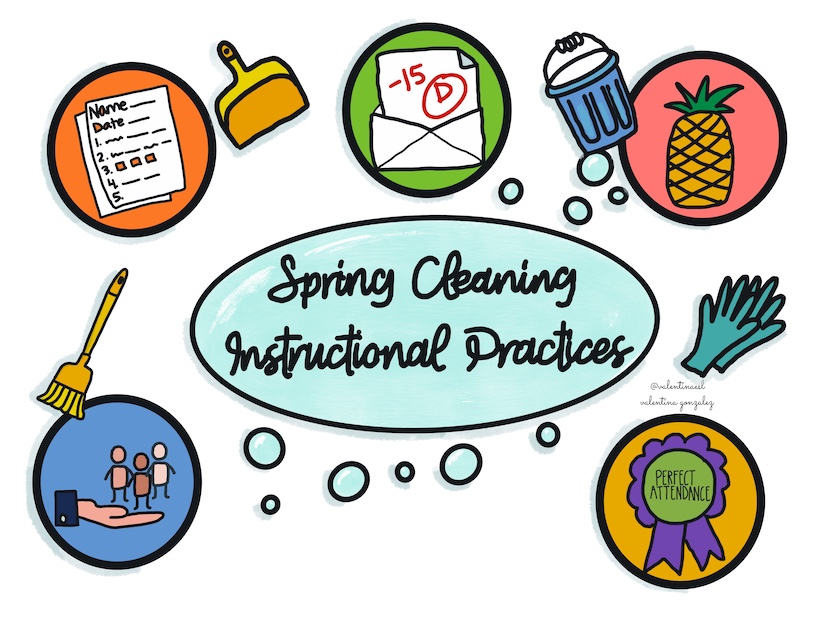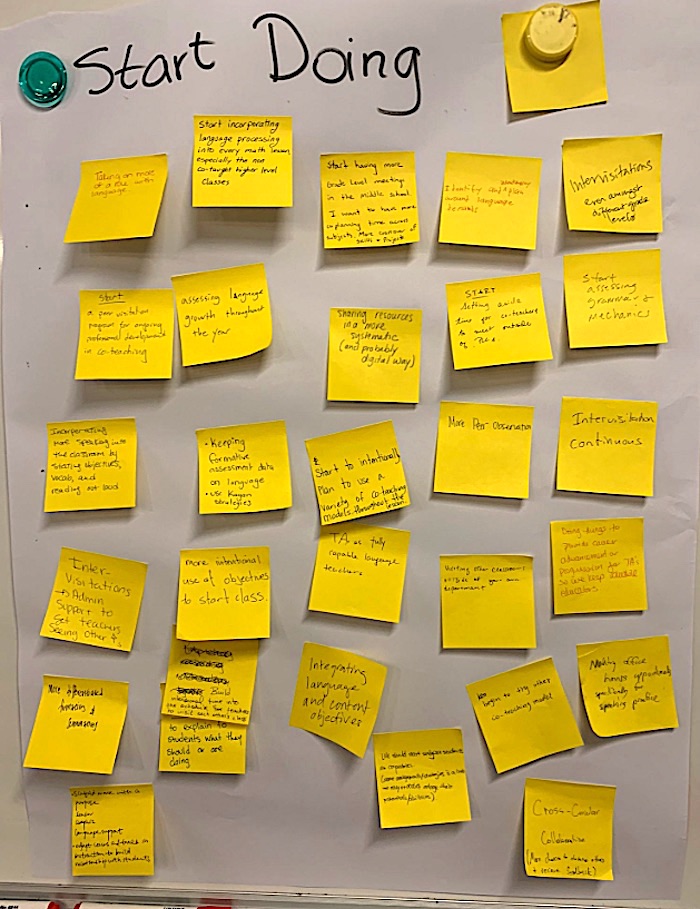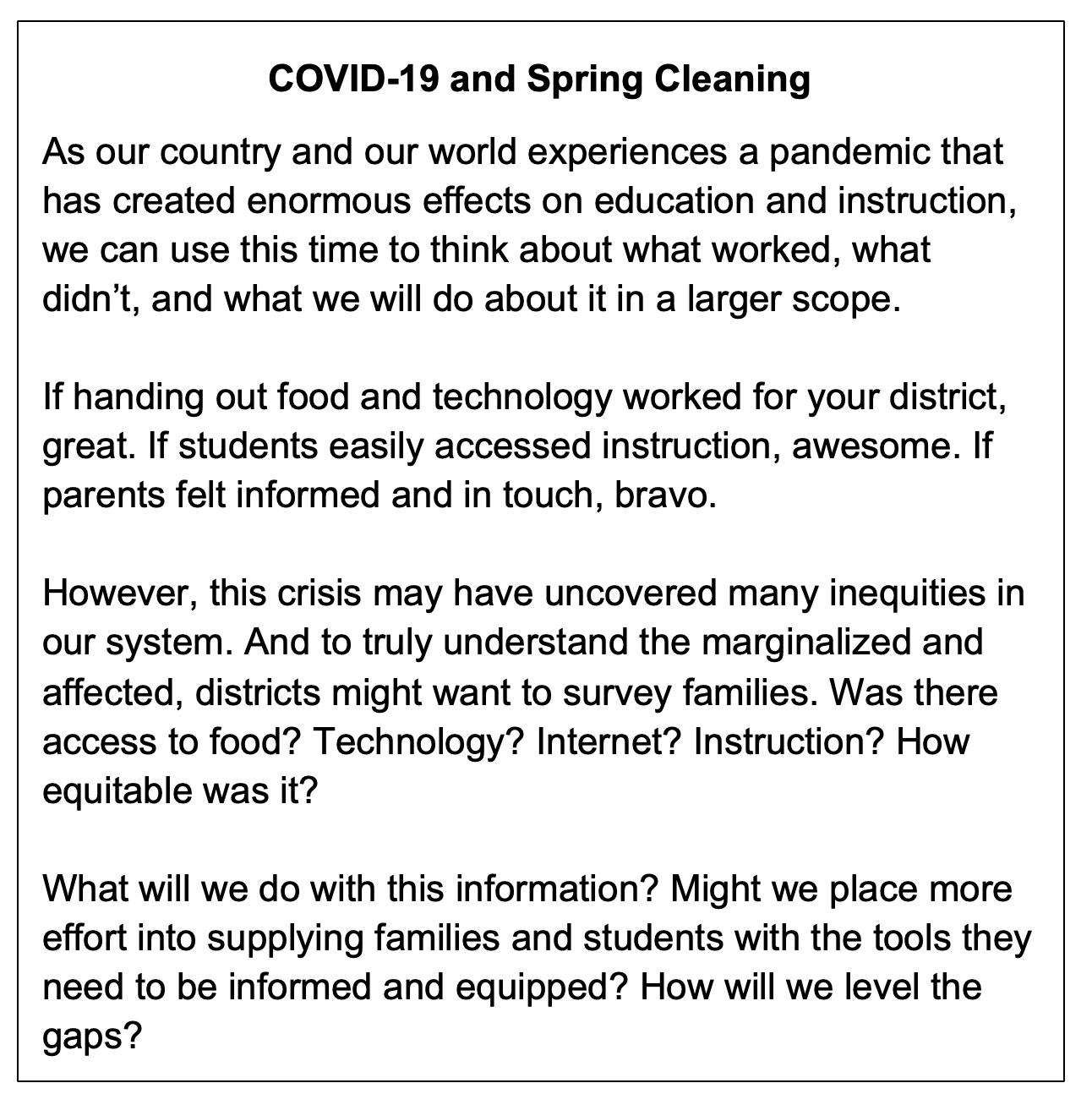Looking Back at What Worked and What Didn’t
A MiddleWeb Blog
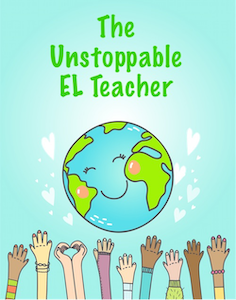 This time of year is often associated with spring cleaning. At home, we might pick a room or area and begin the process of cleaning it out.
This time of year is often associated with spring cleaning. At home, we might pick a room or area and begin the process of cleaning it out.
We think about what’s needed. What we use. What’s not been used and what we can do away with. If you are like me, spring cleaning means picking up an item like a dress or blouse and looking at it. I think…did I use this recently? Does it still fit? If not, I toss it in the pile for donations.
In our classroom, and more broadly in our teaching practice, spring cleaning can serve a similar purpose, as we stop to reflect and ask ourselves questions like these:
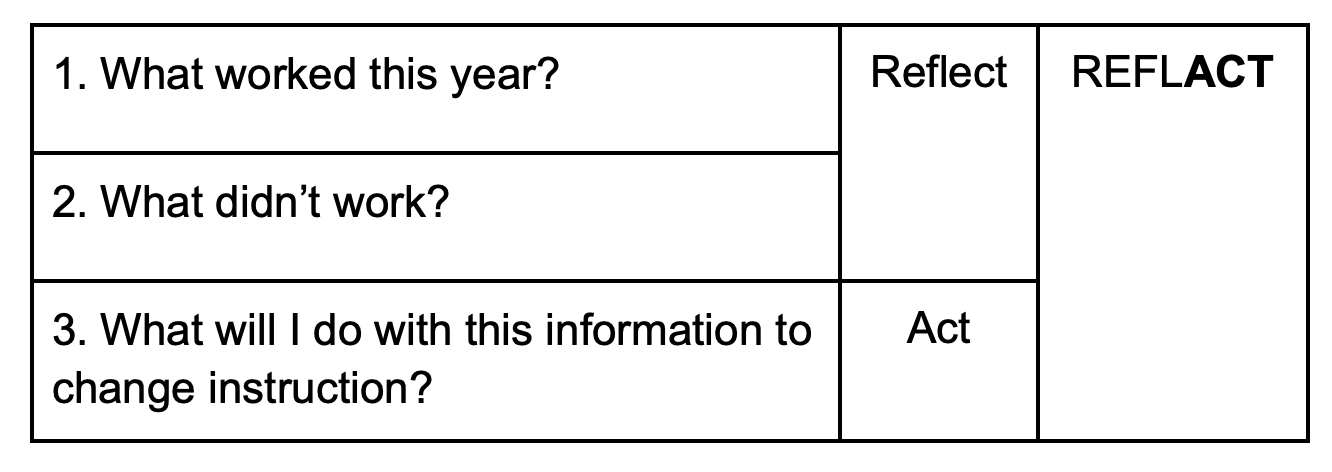
Prolific author and educator Larry Ferlazzo offers his students an evaluation or survey at the end of the year and asks them about his teaching and the class they’ve just experienced. This provides him a lens into his students’ minds and allows him to adjust the learning environment as needed.
I especially like how Ferlazzo tailors the questions for each class. Some examples include:
✻ World History – If and when a friend or a parent/guardian asks you if you like this class, what do you/would you tell them and why would you tell them that?
What grade would you give Mr. Ferlazzo as a teacher and why would you give him that grade?
✻ Intermediate English – Which did you like best? Circle one
Reading at the beginning of Class / Writing Essays / Homonyms/Idioms / Computer
We have two classes in one room going on at the same time. Do you feel that this design affects your learning experience? Circle one
It makes it better / It makes it worse / It doesn’t make a difference
✻ Beginning ELD – What grade would you give
Mr. Ferlazzo: A B C D F
Yourself A B C D F
What topics would you like to learn more about (family, sports, work, etc.)?
The Harvard Business Review points out that surveys, such as the ones Ferlazzo gives to his students, offer 3 main advantages in the workforce which we can easily apply to our classrooms. Surveys…
- are great predictors of behavior
- give participants the chance to feel heard
- are a vehicle for changing behavior
Surveys can be done through Google Forms on paper or on sticky notes. No matter the format, keeping them anonymous helps to support validity.
As a district level ESL facilitator overseeing campus ESL teachers, I sent out these 3 questions at the end of the year to help me reflACT on my practices:
- What should I keep doing?
- What should I stop doing?
- What should I start doing?
Using Google Forms helped me to collect and analyze them in an effort to ACT on the feedback.
I recently saw the same three questions posed at the end of a professional learning opportunity (NCPA in China, January 2020) offered by Andrea Honigsfeld. This was a way for her to gain immediate feedback as well as a way for participants to reflACT on their current practices and begin some spring cleaning of their own.
Here’s one of Honigsfeld’s images, showing her participants’ Start Doing sticky notes:
ReflACTing is not just about lesson plans nor is it limited to classroom teachers. ReflACTing can include reflecting on and developing action steps for current practices such as:
- Grouping ELs
- Assessing ELs
- Retaining ELs
- Seating arrangements
- Resources
- Policies on Retakes
- Policies on grading in general
- Classrooms rules
- Technology integration
- Student awards
- Attendance policies
- Classroom, campus, and/or district culture
In Conclusion
So as this school year comes to an end, develop a plan for your spring cleaning. What will you continue to do that proved successful with students, staff, and/or parents? What will you stop doing based on how it went this year? And what will you start doing in an effort to improve student success?

